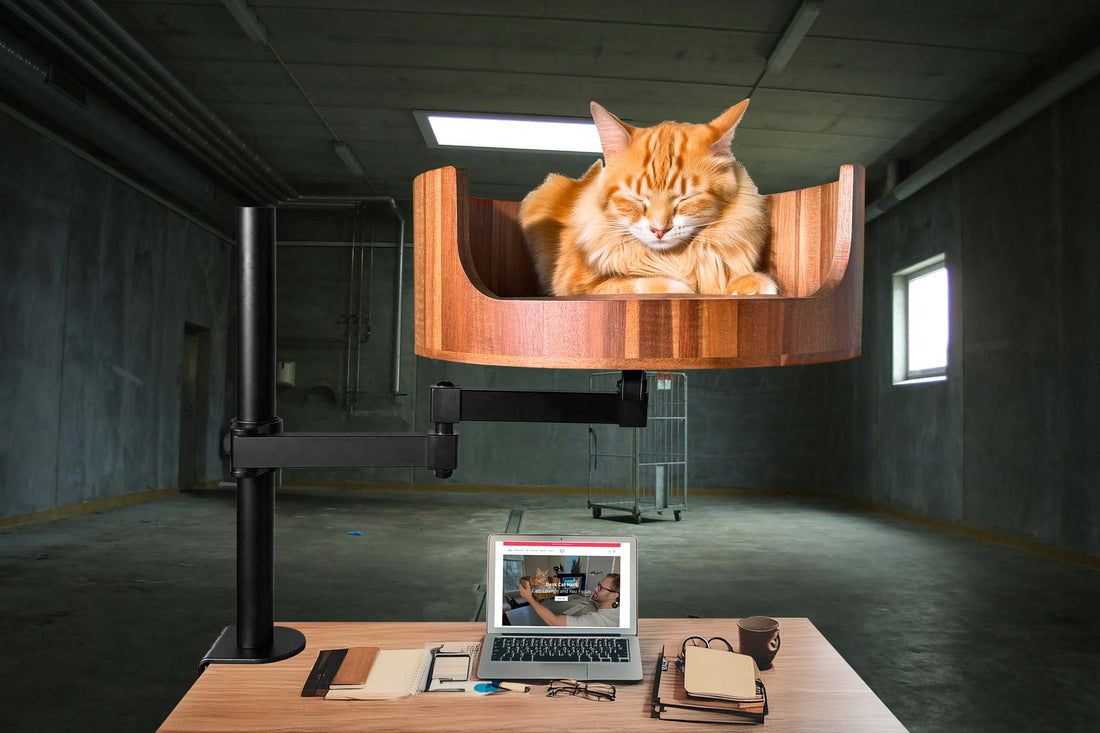
Why Do Cats Roll on Their Backs? Understanding the Behavior
Share
Have you ever noticed your cat suddenly flopping over and rolling on their back for seemingly no reason? While this behavior may seem strange or random, there are actually a few reasons why cats engage in this unusual activity. In this article, we will delve into the fascinating world of feline behavior to answer the question: Why do cats roll on their backs?
From playful antics to communication signals, cats rolling on their backs can convey a variety of messages. Understanding the reasons behind this behavior can provide valuable insights into your cat's mood and intentions. Through a combination of scientific research and anecdotal evidence, we will explore the different motivations behind cats' tendency to roll on their backs and what it means in various contexts. So, next time you catch your cat in a rolling frenzy, you'll have a better understanding of why they do it.
1. Rolling on their backs is a natural behavior for cats, not just a request for belly rubs.
2. Cats roll on their backs to mark their territory with scent glands located on their skin.
3. This behavior can also be a sign of trust and comfort around their human.
4. Cats may roll on their backs to cool down, stretch their muscles, or simply as a way to relax.
5. Understanding why cats exhibit this behavior can help strengthen the bond between pet owners and their feline companions.
Instinctual Behavior
Cats rolling on their backs is an instinctual behavior that dates back to their wild ancestors. In the wild, cats would roll on their backs to show submission or trust to dominant members of their social group. This behavior also helps cats defend themselves in a vulnerable position by using their claws and teeth if necessary.
Communication
Rolling on their backs is also a form of communication for cats. When a cat rolls on its back and exposes its belly, it is signaling to other cats or humans that it feels safe, comfortable, and trusting. This behavior is often seen when a cat is approaching someone it knows or is seeking attention and affection.
Stretching and Grooming
Another reason why cats roll on their backs is to stretch their muscles and groom hard-to-reach areas. By lying on their backs, cats can effectively stretch their back and leg muscles, promoting flexibility and agility. Additionally, rolling on their backs allows cats to groom their bellies and clean their fur in areas that are difficult to reach with their tongues.
Health and Comfort
Rolling on their backs also helps cats regulate their body temperature and find comfort. When cats expose their bellies, they are able to cool down and release excess body heat. This behavior can be particularly helpful during hot weather or after physical activity. Moreover, cats may roll on their backs to find a comfortable sleeping position or rest their bodies after playtime.
Social Bonding
Finally, rolling on their backs can strengthen the bond between cats and their human companions. When a cat rolls on its back and invites belly rubs or scratches, it is showing trust and affection towards its owner. By responding to this behavior with gentle petting and attention, humans can reinforce their bond with their feline friends and create a positive and loving relationship.
Frequently Asked Questions About Cats Rolling on Their Backs
Why do cats roll on their backs?
Cats roll on their backs as a behavior that typically signals relaxation, trust, and enjoyment. They may do this to expose their belly as a sign of submission or to invite physical interaction like petting or play.
Is it normal for cats to roll on their backs?
Yes, it is completely normal for cats to roll on their backs. It is a natural behavior for many cats and can be a way for them to communicate their feelings to their owners or other animals.
Should I pet my cat when they roll on their back?
It is usually safe to pet a cat when they roll on their back, as long as they are showing clear signs of relaxation and enjoyment. However, be cautious and aware of your cat's body language to ensure they are comfortable with the interaction.
What should I do if my cat rolls on their back in a defensive manner?
If your cat rolls on their back in a defensive or aggressive manner, it is important to give them space and avoid trying to touch or interact with them. This behavior may be a sign of fear or stress, and it is best to allow your cat to calm down on their own terms.
In conclusion, providing your cat with a comfortable and secure sleeping space, such as the Desk Cat Bed, can encourage healthy behaviors like rolling on their backs. The elevated design of the Desk Cat Bed allows cats to feel safe and secure while still being able to observe their surroundings. Additionally, the cozy cushioning provided by the bed promotes relaxation and encourages natural grooming behaviors. Investing in a Desk Cat Bed is a valuable choice to ensure your feline friend feels content and secure, ultimately leading to a happier and healthier cat.



















































